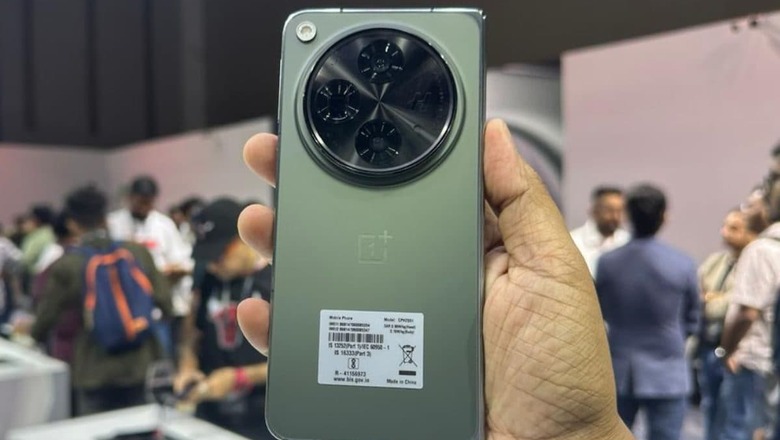
views
OnePlus has launched the new 12 series in the market recently which includes the OnePlus 12R that can be dubbed as an affordable flagship by all means. The company offers 4 years of OS upgrades with the 12, and 3 years if you buy the OnePlus 12R.
OnePlus never explained the reason for its limited-time OS upgrade cycle and did not try to match flagships like the Pixel 8 series and the Samsung Galaxy S24 models that now get 7 years of OS upgrades.
But OnePlus has finally bucked the trend and in a recent interview, one of the company senior executives talked about its strategy and how they feel about companies going 7 years with their update promise. OnePlus COO and president, Kinder Liu has tried to put some sense into offering 7 years of OS updates and explains there is more to increasing the support years for a device.
“It’s not just software update policies that are important to the user, it’s the fluency of your phone’s user experience too,” Liu was quoted saying in this report. Basically, he is trying to say that offering 7 years of updates doesn’t give any value to the user if the phone’s hardware durability drops by then.
He even used the sandwich metaphor to simplify his point. He said that it doesn’t matter if the filling inside a sandwich can be good to eat in 7 years, because we don’t know the quality of the bread and whether it can be good enough to last that long.
It is hard to deny that Liu has made some valid points about extending OS support but some might say that OnePlus is probably not promising that its device can be good to use for 7 years, and hence it limits the OS cycle to 4 years.
Having said that, Liu quotes industry findings which mentions people are likely to upgrade to a new phone after 4 years, so they don’t see the point of getting 7 years of updates in the first place. While Google and Samsung have promised 7 years of OS upgrades, we’re still some years away before we can actually claim these brands have lived up to their promise, especially Google, which has an uncanny habit of backtracking from its word.
One also has to consider that extending OS updates come at a cost, something that Google and Samsung could probably afford for their premium devices, while OnePlus is already going aggressive with its flagship prices, so it might have little room to go further in these aspects.



















Comments
0 comment